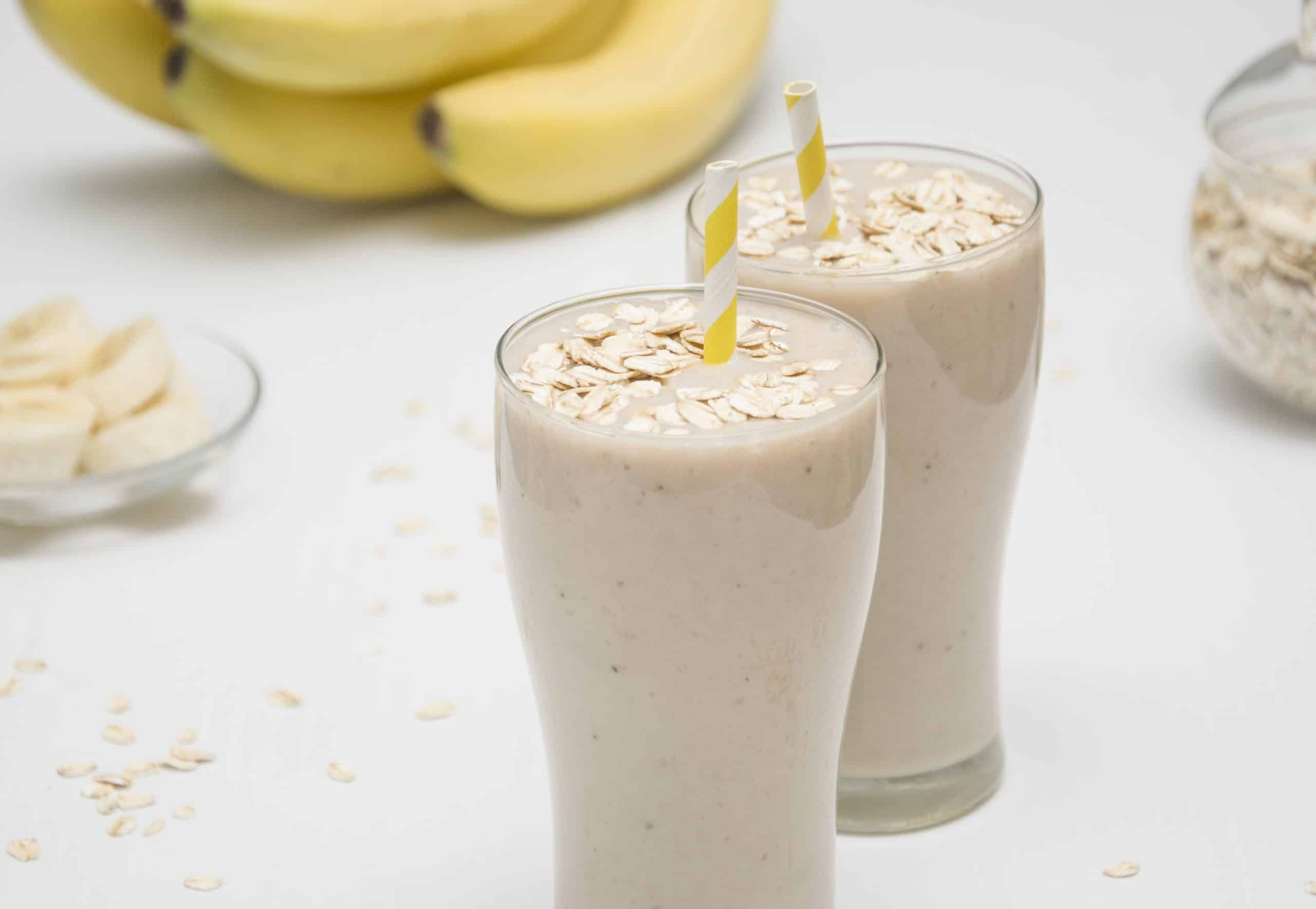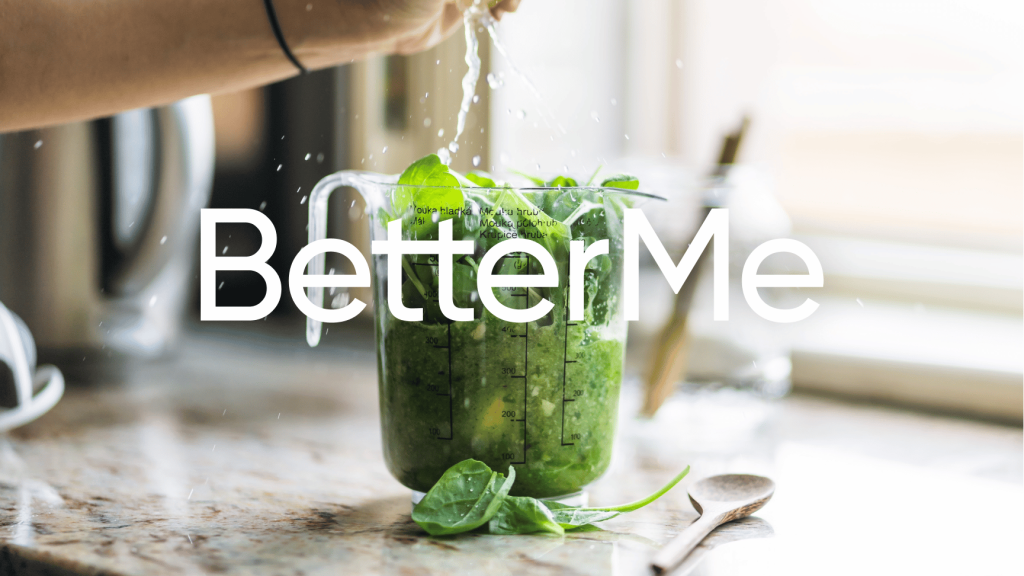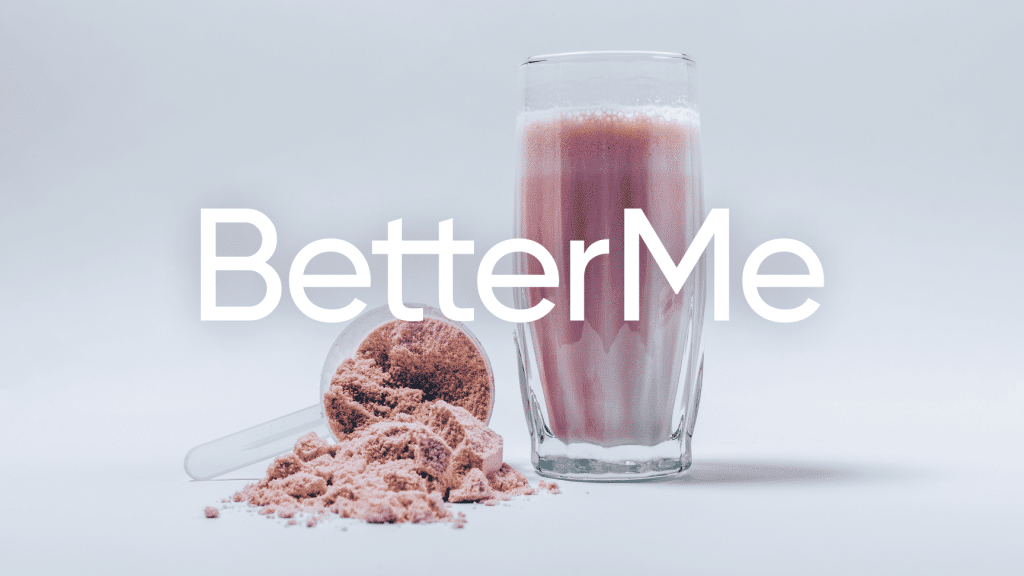Smoothies are one of the easiest and most versatile things you can make to eat or drink. Due to how little effort they require to prepare and how filling they can be if made correctly, they are great for breakfast on the go, a snack, or as a post-workout drink.
If you are looking to drop a few pounds, you may be advised to drink more smoothies or use them as meal replacements as you work toward your goal. But is this a good idea? Are smoothies good for losing weight?
Is a 21-day smoothie diet for weight loss the best way of shedding those extra pounds? Here is all you need to know about how smoothies can impact your weight loss journey.
What Are Healthy Smoothies For Weight Loss?
To answer the question “are smoothies good for losing weight?” we must look at the ingredients that go into this drink. As with any kind of food or drink, the ingredients that are used to make it are what determine whether it will fit into your weight loss diet or not.
Healthy smoothies for losing weight are made using nutrient-dense foods that are rich in nutrients and will keep you feeling full for longer. These healthy drinks have no added sugar or ingredients that will increase your intake of empty calories.
What To Put In Smoothies For Weight Loss
As we mentioned above, the ingredients you choose to add to your blender can make or break your smoothie.
The must-have components for any weight loss smoothie are:
Protein
To lose weight, you must ensure you eat at a calorie deficit. One way of successfully achieving a calorie deficit without starving yourself is to eat foods that promote satiety – i.e. those that make you feel full for longer.
Research has found that protein as a macronutrient increases satiety for longer compared to both carbohydrates and fats. In addition, protein increases thermogenesis, influencing how full you feel and increasing calorie burning slightly, which may help with weight loss (7).
Simple protein sources you can add to your smoothies for losing weight recipes include:
- Nut butters, such as peanut, almond, or cashew.
- Whole nuts – if nut butters are not your thing, simply switch to whole nuts. It is important to note that this option may require a high-speed blender or an extra step of soaking your chosen nuts.
- Seeds, such as chia, sesame seeds, flax, sunflower seeds, pumpkin seeds, and hemp seeds.
- Tofu, specifically silken tofu – not only is this an excellent protein source, it also adds an extra layer of creaminess.
- Milk, plain, or Greek yogurt, but only if you can tolerate lactose. If you are lactose intolerant or vegan, you can replace dairy milk or yogurt with any non-dairy alternative.
- Protein powder – this can be made from whey or be a plant protein. The choice is yours.
Healthy fats
Healthy fats such as protein also increase satiety, helping you eat or snack less throughout the day and creating a calorie deficit in your diet (5, 3)
Some healthy fats sources you can add to your smoothies for weight loss include:
- Avocados (9)
- Coconut milk
- Nuts and seeds – they are fantastic sources of healthy fats and protein
- Full-fat dairy products
- Oil – it may not be the norm, but some people love adding a dash of oil to their smoothies. This is said to help improve the texture and creaminess of your drink. Coconut and olive oil are the most commonly used oils in smoothies.
If you wish to cinch your waist, tone up your bat wings, blast away the muffin top – our fitness app was created to cater to all your needs! BetterMe won’t give excess weight a chance!
Liquid base
Water is the most obvious liquid base for smoothies, but if this is too basic for you, other options include milk, non-dairy milks, coconut water, iced coffee or tea, or juice.
With healthy fats, protein, and a liquid base of choice, your smoothie is basically complete. However, to ensure you are making the best smoothie for weight loss, here are some ingredients you should consider adding:
Fruits and vegetables
Smoothies for weight loss should have some type of fruit and/or vegetable in them. Not only do fruits and vegetables contain many essential nutrients that support overall health, they are also a great way to add more volume and fiber to your smoothie.
Vegetables can be consumed in large volume without really affecting your calorie intake for the day. Fruits vary in calorie content, but you can always choose to add low-calorie fruit rather than high-calorie fruit.
Some options you can choose include:
- Low calorie fruits, such as watermelon, strawberries, kiwis, oranges, tangerines, blueberries, raspberries, apricots, pineapples, and cherries.
- Vegetables – leafy greens such as spinach, kale, Swiss chard, beet greens, and collard greens.
- High-fiber fruits, such as bananas, mangoes, papaya, and cantaloupe.
Whole grains
This is optional, but if you wish to add a bit of texture and more fiber to your drink, a tablespoon or two won’t hurt. Oats and quinoa are excellent examples of this.
It should also be noted that whole grains are a great source of fiber. Fiber takes longer to digest and therefore, it helps keep you feeling full for longer throughout the day.
Sweeteners and flavorings
Most healthy smoothies, particularly those with a lot of greens can be difficult to swallow and may not taste good. This option helps make these drinks more palatable.
As you don’t want to add unnecessary calories if you are trying to lose weight, you should make sure you don’t use sweeteners and flavorings containing added sugars. The best options include:
- Zero-calorie sweeteners such as stevia and monk fruit
- Whole or powdered spices such as cinnamon, turmeric, and ginger.
Ice
As with sweeteners, this is optional. However, ice in a smoothie in the summer can make it extremely refreshing. Ice also adds volume to your drink and you can sip on it for longer, rather than chugging it down all at once.
Can I Lose Weight With Smoothies?
Yes, but only if it is done correctly.
Here are some tips to ensure that your intake will help with weight loss and not lead to weight gain:
Avoid store-bought smoothies
Buying a smoothie from your favorite convenience or grocery store may seem like a good idea, but it’s very likely it isn’t.
Store-bought smoothies have a tendency to be highly calorific and contain added sugars. It’s a better idea to make your own if you can, as you can then control what ingredients go into them.
Count your calories
This may not be the best option for everyone, but it does help, at least initially.
Calories are an important part of every weight loss journey. If you want to lose, maintain, or even add weight, you must know how many calories you consume every day. You should find a reputable calorie counting app and ensure that the smoothies you consume (plus any other food you eat) all stay within the parameters of your calorie deficit.
- Add fiber, protein, and healthy fats to your smoothies – as previously mentioned, they help with satiety, which keeps you in a calorie deficit as you are not snacking or eating too much all day long.
- Limit added sugars – these add a lot of calories that have little or no nutritional value. Try sweetening your smoothie with whole fruits, or add flavor with cinnamon or vanilla extract if you are looking for a sweet taste. If you still feel the need to add some sugar or honey, try to keep this to a minimum.
- Do not skip meals – smoothies are not a reason to skip meals. In fact, it is better to use them as healthy calorie-dense snacks rather than meal substitutes.
You should remember that just because you are losing weight, this doesn’t mean that you should not eat or starve yourself. Eating too little has actually been proven to cause weight gain (2, 8).
If you deprive your body of the calories it needs, it will enter starvation mode, a state in which the body slows down its metabolism and holds on to fat stores, as it believes that it is saving you from death. This is known as adaptive thermogenesis (1, 4).
Read more: What To Put In Your Weight Loss Green Smoothie.
Are Smoothies Good Meal Replacements For Weight Loss?
No, they are not.
Fad diets such as the extreme 21-day smoothie diet for weight loss or the popular 7-day smoothie weight loss diet plan may make you believe it’s a good idea, but it truly isn’t.
At first glance, smoothie diets seem like a fantastic idea. The meal plans and accompanying grocery lists encourage the consumption of a large variety of fruits and vegetables.
This is great as these are great sources of antioxidants and nutrients that support immunity. Fruits and vegetables are also low in calories, which makes them perfect for anyone who is looking to shed some pounds.
However, upon closer inspection, it can clearly be seen that the diet isn’t all it’s cracked up to be for various reasons:
It’s quite restrictive
When following the smoothie diet, you are only required to eat one proper meal and two small snacks. The two other meals are meant to be replaced with smoothies.
Regardless of how many fruits and vegetables you add to a smoothie, it will most likely not be filling enough to be considered a full meal. Consuming two smoothies as full meals a day will drastically reduce your calorie intake.
As previously mentioned, drastically reducing your calorie intake may not help you lose weight. You should also note that any weight that is lost during this time will most likely be water weight rather than fat.
It isn’t sustainable
Try as you might, you really cannot survive on two smoothies, two small snacks, and dinner for the rest of your life.
To achieve proper weight loss and management, you require a diet and workout plan that are sustainable in the long term. Remember that the minute you fall off an unsustainable and unhealthy diet, your body will very quickly gain back all the weight it has lost.
It’s not healthy
Most such diets only tell you to eat fruits and vegetables and advocate the removal of protein, healthy fats, and carbs – all things that make up a balanced diet.
Even if you stray from the strict rules and choose to add foods, you will not hit your macros (particularly protein macros) with two simple smoothies a day.
Can be high in sugar
Too much added sugar will only lead to weight gain and may increase the risk of chronic illnesses and dental problems (10, 6).
BetterMe is your fast-track ticket to a long-lasting weight loss! Tailor your fitness journey and maximize your results with just a couple of swipes!
How Often Should You Drink Smoothies For Weight Loss?
Depending on your daily calorie intake and how much you work out, one or two smoothies a day will be enough for weight loss. You should remember that smoothies are best as a snack or an easy breakfast on busy days.
FAQs
What is the biggest benefit of blending smoothies vs. juicing?
Both juicing and blending fruits and vegetables have similar benefits, but blending is generally considered to be the healthier option.
This is mostly due to the fact that juicing gets rid of the fiber from fruits. By discarding the fibrous parts of fruits and vegetables, you end up throwing away many nutrients that are good for your health and body. In addition, the fiber helps you feel full after consuming a smoothie.
What are the best natural sources of caffeine to use in smoothies?
Black tea, black coffee, kombucha, and dark chocolate are all natural sources of caffeine that can be used in smoothies for weight loss. For those who like experimenting, fresh tea leaves can also be blended into smoothies to provide a caffeine kick.
What is the best smoothie for losing belly fat In 1 week?
There is no smoothie that will help you lose belly fat in 1 week. In order to lose belly fat, a combination of diet and a healthy calorie deficit is needed.
You also cannot lose belly fat in 1 week, regardless of what any new or trending diet or workout plan promises.
Fat loss is a lengthy process that can take anything from 4 to 6 weeks to start to become noticeable, and likely longer to reach your goals.
What are yogurt smoothie recipes for weight loss?
They are simply recipes that use some type of yogurt as the liquid base of the smoothie. Popular yogurt options for this include:
- Plain yogurt
- Greek yogurt
- Flavored yogurts such as coconut, vanilla, or strawberry
What ingredients are used in detox smoothie recipes for weight loss?
Your body detoxes itself on its own – you don’t need to help it do its job. In addition, specific foods or beverages have no bearing on your body’s ability to get rid of toxins. Most “detox” smoothies and juices are incredibly low in calories and are used to replace nutritious meals, which results in inadequate energy and nutrient intake.
Does blending food help you lose weight?
The act of blending foods has no effect on whether or not you will lose weight. It is simply a way of preparing and consuming foods. If you enjoy smoothies, you can include them as part of a healthy and balanced diet for weight loss. Just remember that smoothies should not be used as meal replacements and you must still eat properly to lose fat and weight.
Is it healthier to eat fruit or blend it?
It is generally advised that eating whole fruits and vegetables is better than blending them. Fruit skins contain a lot of necessary fiber and nutrients that are lost through peeling, and eating a whole piece of fruit can be more satisfying than drinking it in the form of a beverage, which can have a bearing on how soon you feel hungry again.
Can smoothies be used to replace meals?
Yes, but this is not recommended.
Surviving on smoothies alone will not provide you with enough energy and nutrients to lead a happy, healthy, and energetic life. These drinks do not contain enough protein, carbs, or healthy fats for an adult, teenager, or child. Smoothies are best enjoyed as snacks or add-ons rather than as full meals.
Read more: Sip Your Way To Weight Loss Success With The Ultimate Fat Burner Smoothie.
The Bottom Line
Yes, they can be included as part of a healthy and balanced diet for weight loss when prepared and consumed in the right way. In order to lose weight, you should avoid using smoothies as meal replacements and any diets that suggest doing this. Instead, you should choose to use smoothies as delicious, healthy snacks.
You should always eat proper meals and prepare your smoothies using the ingredients mentioned above.
Get your personalized
meal plan!
DISCLAIMER:
This article is intended for general informational purposes only and does not serve to address individual circumstances. It is not a substitute for professional advice or help and should not be relied on for making any kind of decision-making. Any action taken as a direct or indirect result of the information in this article is entirely at your own risk and is your sole responsibility.
BetterMe, its content staff, and its medical advisors accept no responsibility for inaccuracies, errors, misstatements, inconsistencies, or omissions and specifically disclaim any liability, loss or risk, personal, professional or otherwise, which may be incurred as a consequence, directly or indirectly, of the use and/or application of any content.
You should always seek the advice of your physician or other qualified health provider with any questions you may have regarding a medical condition or your specific situation. Never disregard professional medical advice or delay seeking it because of BetterMe content. If you suspect or think you may have a medical emergency, call your doctor.
SOURCES:
- Adaptive thermogenesis in humans (2010, ncbi.nlm.nih.gov)
- Dieting and restrained eating as prospective predictors of weight gain (2013, ncbi.nlm.nih.gov)
- Hunger and satiety responses to high-fat meals after a high-polyunsaturated fat diet: A randomized trial (2017, sciencedirect.com)
- Metabolic adaptation to caloric restriction and subsequent refeeding: the Minnesota Starvation Experiment revisited (2015, pubmed.ncbi.nlm.nih.gov)
- Monounsaturated Fat vs Saturated Fat: Effects on Cardio-Metabolic Health and Obesity (2022, ncbi.nlm.nih.gov)
- Perceived Associations between Excessive Sugar Intake and Health Conditions (2022, ncbi.nlm.nih.gov)
- Protein, weight management, and satiety (2008, pubmed.ncbi.nlm.nih.gov)
- Reducing Calorie Intake May Not Help You Lose Body Weight (2017, ncbi.nlm.nih.gov)
- The Impact of Avocado Fruit on Postprandial Satiety: an Acute Dose Response Study (2018, faseb.onlinelibrary.wiley)
- The sweet danger of sugar (2022, health.harvard.edu)









